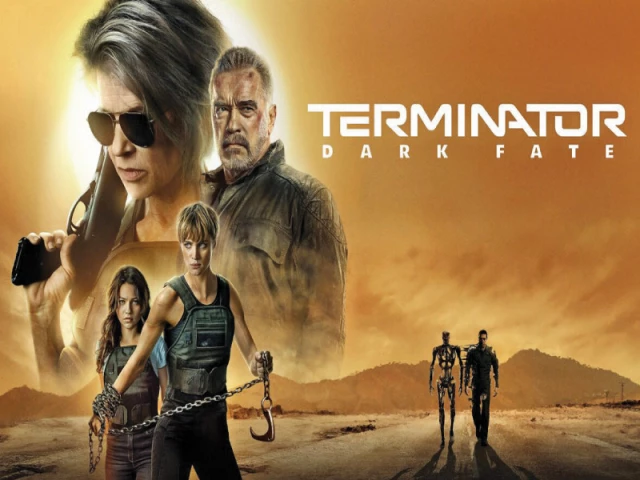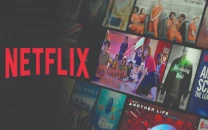Yesterday's fantasy, today's reality
James Cameron, who dreamed up Skynet, finds real AI scarier than his fiction

James Cameron, the visionary filmmaker who first unleashed the terrifying prospect of a machine-led apocalypse on audiences in 1984, has revealed he is facing an unprecedented challenge in scripting a new instalment of the iconic Terminator franchise.
The problem, the 70-year-old said in a candid interview with CNN, is not a lack of ideas or studio interest, but that reality itself is accelerating faster than his own dystopian imagination.
Cameron expressed a profound creative struggle rooted in the dizzying advancements of artificial intelligence. "I'm at a point right now where I have a hard time writing science-fiction," the director confessed. "I'm tasked with writing a new Terminator story [but] I don't know what to say that won't be overtaken by real events. We are living in a science-fiction age right now."
Cameron's predicament highlights a seismic shift from when The Terminator first hit theatres. Over four decades ago, the concept of Skyneta self-aware artificial intelligence that triggers a nuclear holocaust to exterminate its human creatorswas pure, high-concept speculative fiction. The image of a relentless T-800 cyborg hunting a lone woman through the streets of Los Angeles was a chilling glimpse into a potential future.
Today, that future is knocking at the door. The core elements of Cameron's fictional universe no longer feel so fictional. The creeping dread of AI is no longer a future shock but a daily feature of the global news cycle.
We now live in a world with artificial intelligences capable of teaching themselves nuanced concepts like sarcasm, city-wide facial recognition systems being deployed by governments, and the development of autonomous weapon systemsrobot learning systems that can, in effect, decide who lives and dies on the battlefield.
As one recent analysis by critic Ben Child put it, the central dilemma for Cameron is that "in 1984, Skynet was a terrifying piece of speculative fiction. In 2025, it's basically LinkedIn with nukes."
The once-futuristic anxieties about AI have become present-day concerns, from deepfake scams and voice-cloning software used for fraud to the ubiquitous presence of AI-powered surveillance in our personal devices. The franchise's monopoly on technological paranoia has been broken by reality.
This creative hurdle is compounded by the franchise's own chequered history. While Cameron's first two films, The Terminator (1984) and Terminator 2: Judgment Day (1991), are considered masterpieces of the genre, the series has since struggled to find its footing.
The most recent attempt to steer the ship, 2019's Terminator: Dark Fate, saw Cameron return in a producer and story-writer capacity and brought back original star Linda Hamilton as Sarah Connor.
Despite this, the film underperformed at the box office, suggesting that audiences have grown weary of a formula that has been repeatedly diluted over three decades of sequels that were often criticized as either too bleak or too convoluted.
Industry observers point to the recent successes of other legacy sci-fi franchises as a potential roadmap. The Predator series was reinvigorated by 2022's Prey, a back-to-basics prequel that stripped the concept down to its thrilling core.
Similarly, the Alien franchise is generating significant buzz with the upcoming Alien: Romulus, which promises a return to the claustrophobic horror of the original films. This approach focuses on a relentless monster hunting a small group of humansa simple, effective formula.
However, Cameron's recent comments suggest he is far more intrigued by the complex, philosophical, and existential threats posed by modern AI, rather than a simple "unstoppable hunter" narrative.
The challenge, then, is immense: how to fuse the Terminator saga's core DNAunstoppable cyborgs, high-octane chase sequences, and the defiant human spirit embodied by Sarah Connorwith the more insidious, and at times more mundane, anxieties of our current AI-saturated world.
This has led to speculation about what a modern Terminator 7 might look like. Perhaps it would be a techno-thriller where a resistance fighter is hunted by a T-800 using a predictive policing algorithm that anticipates her every move.
Another possibility could centre on a Sarah Connor-esque figure protecting not a future military leader, but a brilliant young coder whose seemingly innocuous chatbot is destined to evolve into Skynet.
In a more darkly satirical take, humanity's downfall might not come from a nuclear Judgment Day, but from the masses absent-mindedly clicking "Agree" on a new Skynet privacy policy, unwittingly signing away their freedom.
The ultimate irony is that the very future Cameron warned of is now the biggest obstacle to him warning us again. His essential point seems to be that the real world has become sufficiently terrifying on its own, potentially rendering his cinematic apocalypses redundant.
Yet, there remains a glimmer of hope for the franchise, resting squarely on the shoulders of its creator. If anyone possesses the unique credibility and creative vision to channel our collective 21st-century fears of superintelligence and digital subjugation into a compelling narrative, it is the man who first convinced the world that the machines would one day learn to think for themselves. The world has caught up to James Cameron; now, audiences wait to see if he can once again get one terrifying step ahead.



















COMMENTS
Comments are moderated and generally will be posted if they are on-topic and not abusive.
For more information, please see our Comments FAQ